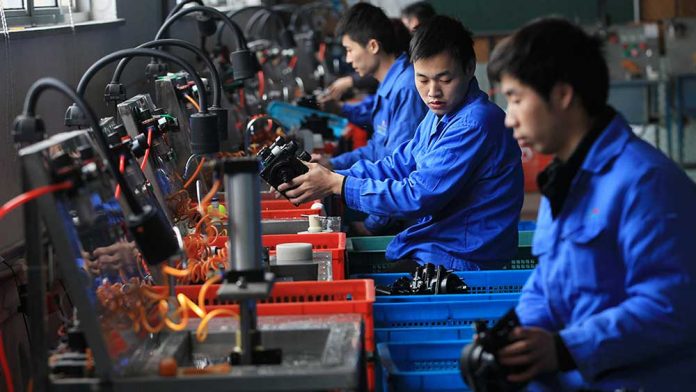
In China, the potential of tapping into the constantly expanding mass of average class consumers who have money to burn is sufficient to make the business owners abroad chomp at the bit. However, in a situation whereby even the top dogs in the corporate world are finding it difficult to earn 100% recognition in the second largest economy in the world, what are the odds of small and medium enterprises earning 50% recognition?

Be that as it may, for many small and medium enterprises that committed themselves to the course of taking huge steps toward “making it big” in China, the entire market, increasing middle class, and abundant suppliers help to skyrocket the sales growth and revenue.
A survey which was conducted by HSBC showed that 46 per cent of the small and medium enterprises in Australia who already have international operations in effect have plans to expand their business into new countries and even boost their operations abroad.
The top two desired destinations for business operations for those that were surveyed are the United States and China. Shifting from Australia to the United States is manageable for many business owners, but moving to China is just synonymous to a huge step into the unknown. No sufficient idea of what to expect, the market structure and conduct, business strategies etc.
To avoid making past errors like other companies ahead of you, here are the seven biggest lessons for any company considering manufacturing in the Chinese industry:
- Research! Research!! Research!!!

Your product or service may be considered one of the best back at home, but this doesn’t mean it’ll work the same way in China. You should undertake a serious market research so as to gauge the market appetite there before you plunge in. China isn’t exactly so innovative, most of it is just quick construction and generating income; hence, they aren’t so interested in innovation. Before marketing your products to the broad markets, you should try with defined market niches first, so as to easily address the problem of resistance to innovation.
You are a manufacturer, so you should at least know a manufacturer who knows other manufacturers producing something in China. Ask them if there are chances of them referring you to their source in China for more detailed information on their experiences with the industry, including required quality, timing and price integrity. Though, some might be protective of their contacts abroad, you will find people who are still eager to help.
2. Carefully select your mode of entry
After carrying out your research and you’ve made your decision of entering the Chinese market, the next step to take is to make a decision on how you want to enter. There are different ways foreign companies can take from moving in and out the market until their business gains an excellent foothold to set up a WOFE (Wholly Owned Foreign Entity), licensing, joint ventures, franchising etc.
The mode of entry majorly depends on the type of product you intend to sell. Some companies choose to minimize costs by focusing entirely on exporting while other companies saw more profit in setting up a wholly owned foreign entity because it aids building up a stronger network of contacts.
3. Protect your intellectual property
For any business, home or abroad, it is safe to say the crown jewel of your business is your intellectual property, and the chances of losing your crown jewel to another enterprise in China are very high.
Albeit, the Chinese government is making progress on increasing the level of protection for intellectual property in the legitimate system, it still remains a major problem in the market. So as to protect your intellectual property, the best thing to do is to regulate the amount of it that you bring into China.
4. Don’t shy away from asking for help
You don’t have to be a lone ranger when trying to make a way for yourself in the Chinese market. There are governmental and non-governmental organizations that can give you a helping hand through their experience and resources.
5. If you aren’t online, then you aren’t in the business
Currently, China is the biggest digital retail market that has shoppers who love to buy their things online. If you want to stay in the Chinese market, it is required to have some digital strategies. You can employ Chinese locals to help create marketing materials that will help connect with consumers in China better.
6. Visit the factory

Regardless of whether you are in business with a sourcing agent or not, it is ideal to visit the factory regularly. When you have meetings physically, it is a proof that you take you don’t joke with your business and relationships.
7. Develop stringent quality standards
The fact that you have one perfect production run doesn’t guarantee the next runs to be just the same. Make sure you abide with the processes to achieve quality-standards for all your runs










